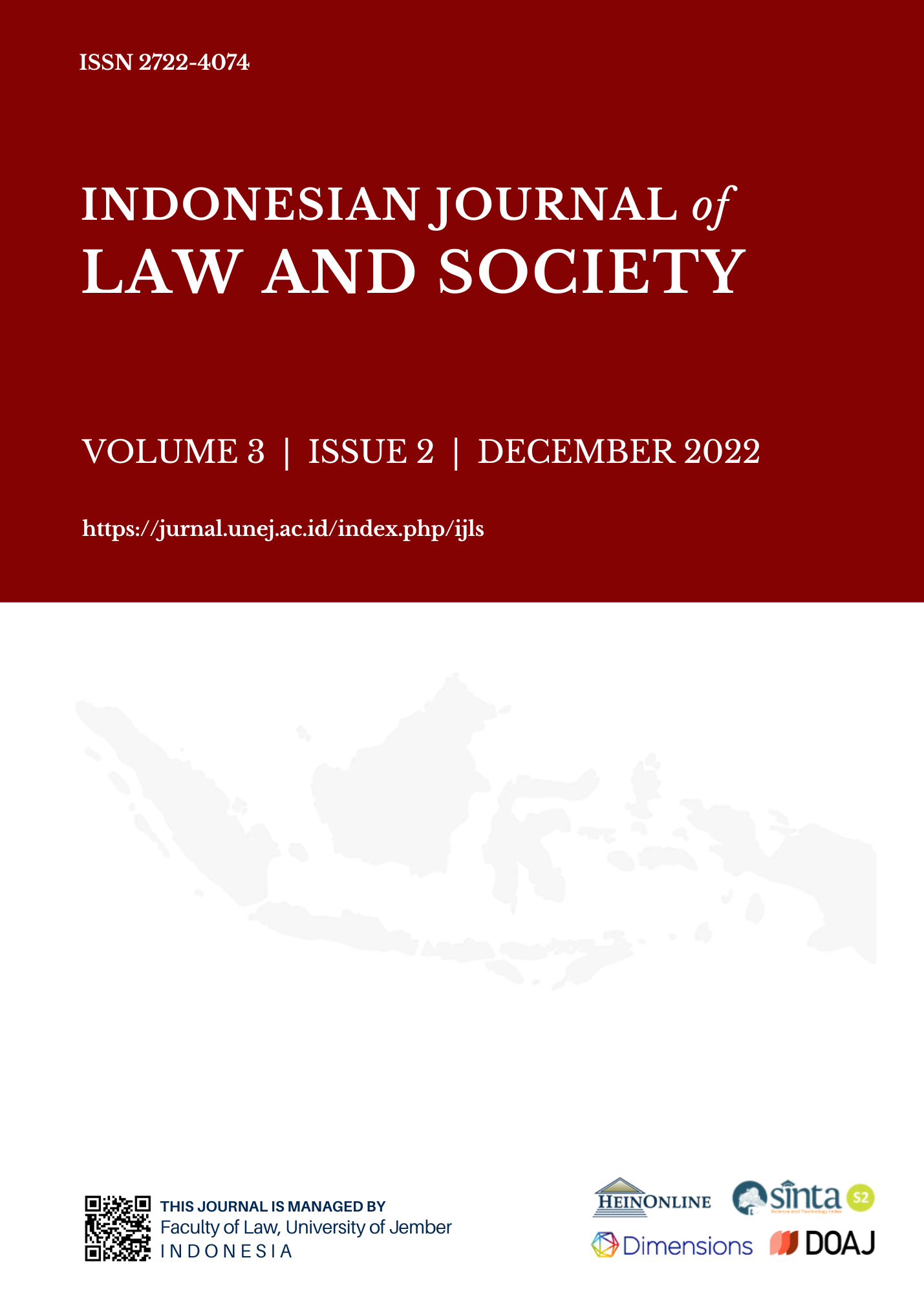Addressing the Necessity for a 'Witness Protection Law' to Eliminate Backlogs in Criminal Cases in Bangladesh
DOI:
https://doi.org/10.19184/ijls.v3i2.33611Abstract
The testimony of the witness is regarded as the primary evidence by the court when convicting someone under criminal law. Consequently, the accused makes the witness their major target in an effort to disrupt a fair trial, which makes the witness uninterested in supporting the allegation. However, Bangladesh does not currently have a law specifically addressing witness protection, while the need for such a law is growing, and the concerned parties and the court are urging the government to do so. This paper aims to show that the witness protection statute significantly influences the reduction of criminal case backlogs. To investigate the aforementioned argument, the writers have considered the witness protection law and the backlog in criminal cases. Besides, this research emphasizes the necessity for effective witness protection measures by drafting thorough criminal legislation in Bangladesh. The authors applied the quantitative approach using a systematic questionnaire to conduct a survey of 271 respondents, who were chosen by the researchers to comprehensively understand the necessity for witness protection laws and how they relate to the backlog of criminal cases to substantiate the paper's argument. Witness testimony is important evidence, yet the law of our country makes no separate anticipation of witness protection. Occasionally, witnesses are threatened, which makes them unwilling to testify honestly and obstructs the delivery of impartial justice. Besides, witnesses decide not to testify because they fear being marked out in the future. Consequently, every day that the case is unresolved adds to the backlog at the court. Only when separate laws were to be created for the witnesses would it benefit the witnesses and reduce backlogs.
Downloads
Downloads
Published
Issue
Section
License
The Indonesian Journal of Law and Society has CC-BY-SA or an equivalent license as the optimal license for publishing, distributing, using, and reusing scholarly work. Authors who publish with this journal retain copyright and grant the journal right of first publication with the work simultaneously licensed under a Creative Commons Attribution-ShareAlike 4.0 International License that allows others with permission from the publisher to share the work with an acknowledgment of the work's authorship and initial publication in this journal.


